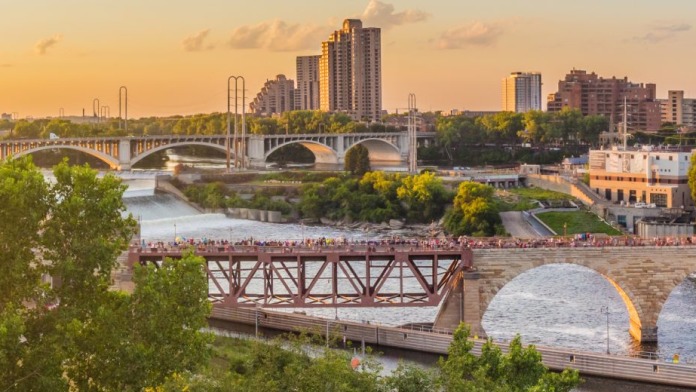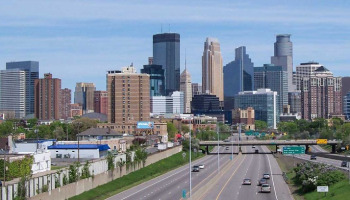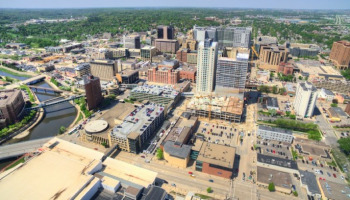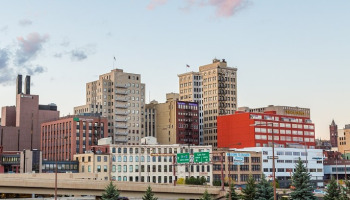Expert Insights
2021 was a record-breaking year for drug overdose deaths in Minnesota. The state is up to more than three deaths a day caused by overdoses. Fortunately, officials in this Land of 10,000 Lakes realize that turning the tide on this complex epidemic will require a complex approach. The focus must include prevention, response, and treatment, which is exactly what Minnesota policies include. So far, prevention strategies have improved prescribing guidelines, response efforts have increased naloxone access, and treatment services have expanded treatment options. This multi-faceted approach is ideal for making positive change in Minnesota.
~ Kerry Nenn
How Much Does Drug Rehab Cost in Minnesota?
Minnesota is ranked 20th nationwide in terms of addiction treatment affordability, with an average cost of drug and alcohol rehab of $56,630 (without insurance).
- Medical detox is the most expensive, with an average cost of $139,614
- Long-term inpatient drug rehab in Minnesota costs an average of $49,972
- Outpatient addiction treatment in Minnesota costs an average of $8,303
- Outpatient methadone treatment is the most affordable, with an average cost of $7,378
Many factors determine how much you will pay at a Minnesota drug and alcohol rehab. Some facilities offer free care, while others provide more luxurious amenities. Prices can range from nothing to thousands of dollars depending on which type of place you choose.
Some other factors that will affect your treatment costs are:2
The type of program you enter (i.e., inpatient or outpatient)
The amenities offered, such as private rooms and gourmet food
The duration of your stay at the treatment facility or detox center
What type of insurance you have and what costs they cover in rehab
Choosing a rehab facility in-network with health insurance provider
Staff-to-patient ratios
The location of the treatment center
How to Pay for Drug Rehab in Minnesota
As of 2024, there were over 440 drug rehab facilities across the state of Minnesota. These facilities accept several payment methods. Of those treatment facilities, the following numbers reflect how many accept their respective payment methods:
Finding Low-Cost and Free Drug Rehab Centers in Minnesota
The cost of alcohol or drug rehab in Minnesota should not keep you from seeking or receiving care, since many treatment centers will offer payment plans, sliding-scale fees, scholarships, or discounts if you cannot afford the out-of-pocket upfront cost.

When searching, you will find that some of the facilities are state-funded. This means they receive money from the Minnesota government to help cover costs for those who qualify for free treatment. The government website, Substance Abuse and Mental Health Services Administration (SAMHSA), has a directory of free Minnesota drug rehabs.3
To qualify for free help, you will have to meet certain requirements, such as:4
- Being a Minnesota resident
- Providing proof that your annual household income is below a certain threshold
- Lacking access to health insurance that covers care
Finding a state-funded drug or alcohol rehab in Minnesota may take some research, and these facilities often have limited space available. For more information, get help today at
800-681-1058
(Who Answers?)
.
Does Insurance Cover Rehab Center Costs?
Yes, Medicare and Medicaid do cover the cost of care. The Affordable Care Act (ACA) has recently mandated that Medicaid and Medicare, along with all insurance policies issued under the state health exchanges, cover part or all the costs of treatment in their programs.5
You can check the back of your insurance card for a phone number that you can call and speak to the insurance provider directly about your plan details and costs.
Medicaid
All Medicaid programs pay for some level of treatment for drug and alcohol addiction under their mental health services.7 You do have to be in one of the eligible groups to qualify for Medicaid, which includes include low-income individuals, pregnant women, children, or those receiving supplemental security income (SSI).6
Medicare
Medicare differs from Medicaid in that it is solely funded at the federal level, which means the program remains consistent from state to state. To qualify for Medicare health insurance, you must be an American citizen, over the age of 65, or have a qualifying disability.
Private Insurance
If you do not qualify for any free or state-funded programs, you can still get healthcare coverage through a private insurance company. Most private insurance also covers drug and alcohol addiction treatment. These insurance policies will help cover costs through things like co-pays, deductibles, and co-insurance rates.
Minnesota Drug and Alcohol Use Statistics
Below are some recent stats related to drug and alcohol use in Minnesota:
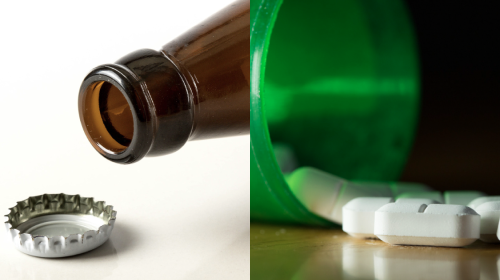
In 2017, 636 Minnesota residents died from alcohol use and 422 died from opioids.1
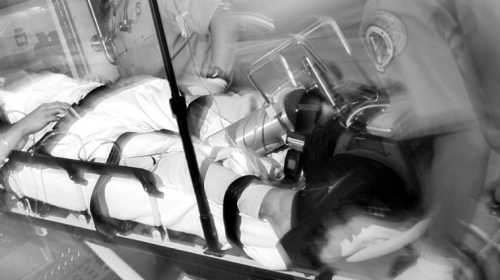
Between 2000 and 2017, the number of alcohol-related deaths increased by 94%.1

In the same time frame, opioid-related deaths increased by 681%.1
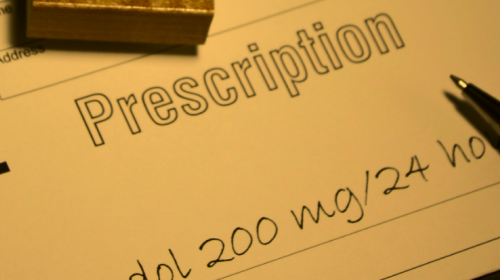
In MN, more opioid-related deaths are caused by prescription opioids than synthetic opioids.1
What Are Drug and Alcohol Laws in Minnesota?
Minnesota Good Samaritan Overdose Prevention Law: This law specifies that a person, who in good faith seeks medical assistance for another person who is experiencing an alcohol or drug overdose may not be arrested, charged, prosecuted, or penalized. This law was put in place to prevent unnecessary deaths from overdose.
Minnesota’s Drug and Alcohol Testing in the Workplace Act: In Minnesota, employers are not allowed to drug test their employees with impunity. The laws limiting drug and alcohol testing by employers are incredibly strict, allowing only specific instances in which drug and alcohol testing could possibly be legal.
DWI Laws: Minnesota’s driving while intoxicated laws make it illegal to drive, operate, or be in control of any motor vehicle anywhere in the state while under the influence of a controlled substance, alcohol, or any intoxicating substance; having a BAC of .08 or more; having any amount of a Schedule I or II controlled substance (other than marijuana), in the body.
Marijuana Laws: As of July 1, 2022, Minnesota residents 21 years old and older can legally purchase and consume edible and drinkable products containing hemp-derived THC.
If you or someone you know needs assistance with alcohol addiction, please get help today at
800-681-1058
(Who Answers?)
.
Levels of Care in Addiction Treatment
Medical Detox
Medical detox is often the first step of recovery. Detox is the process your body goes through to get rid of the drugs and/or alcohol in your body. Medical detox is when you use medications to help alleviate the withdrawal symptoms that often coincide with detox.
Inpatient
Residential or inpatient treatment provides round-the-clock supervised care while you live at the facility. You will take part in a variety of interventions, including individual and group therapy, nutritional counseling, experiential therapies, and medication.
Partial Hospitalization Programs (PHPs)
PHPs permit you to stay at home while attending care at a hospital. You can get many of these same services in inpatient care, but PHPs allow you to return home during non-treatment hours.
Intensive Outpatient Programs (IOPs)
IOPs are a step down from PHPs. With these, you only attend a few hours of counseling over several days each week. The rest of your time is spent at work, school, or fulfilling other obligations.
Standard Outpatient
As the least intensive option, standard outpatient care involves just one to two hours of treatment per week. This level is typically best for highly motivated people with a strong support system.
Aftercare
Your team will work with you to create an aftercare plan that may include attending Alcoholics Anonymous or Narcotics Anonymous meetings, staying in sober living, and continuing ongoing therapy.
How Do You Choose an Alcohol or Drug Rehab in Minnesota?
It can be difficult to know what to look for when choosing a quality program. Many things contribute to the quality of an addiction treatment center:
Program Accreditation
Accreditation is one way for a treatment center to stand apart from the crowd. If you find an accredited Minnesota drug rehab center, it means that a governing body has assessed the program and found it to meet its criteria for a quality facility.
Financing Options
A quality program is going to prioritize providing care to everyone that needs it. Look for Minnesota drug rehabs that offer multiple financing options and accept varying types of insurance.
Individualized Treatment Plans
One-size-fits-all approaches do not work in recovery since everyone is unique and has different needs. A quality treatment center will focus on creating an individualized plan that fits your specific needs.
Use of Evidence-Based Interventions
Researchers and medical professionals continually conduct studies to determine what the best interventions are based on evidence so that treatment centers can use the most proven methods.
Aftercare
A quality program will understand that your recovery does not end when your program is over. Ongoing support and therapy is essential in maintaining sobriety and avoiding relapse.
Other Things to Consider:
Does the treatment center offer the type of care you need?
Does the treatment center have proven success with its patients?
What does their relapse prevention plan and response to relapse look like?
Is it located in a convenient or desired area for you?
What amenities are important to you, and which rehabs offer them?
What are the program rules regarding visitors?
Should You Travel for Drug and Alcohol Rehab in Minnesota?
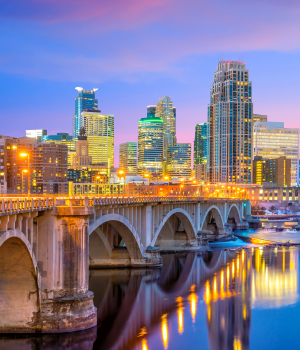
How do you know if traveling to Minnesota drug rehab centers is the best choice for you? It can be hard to conclude, but some things to help you consider are:
- Do you want to be in a certain environment for your rehab such as near mountains and lakes?
- Do you have family or friends in Minnesota that you want to be near during your treatment?
- Does your insurance cover drug rehab in Minnesota?
- Would you like to attend a facility with special amenities?
Resources
- FindTreatment.gov. (n.d.). FindTreatment.gov.
- Minnesota Department of Health. (n.d.) Suicide, Alcohol, and Opioid Deaths in Minnesota.
- Broome KM, Knight DK, Joe GW, Flynn PM. (2012). Treatment program operations and costs. Journal of Substance Abuse Treatment, 42(2), 125-133.
- National Institute on Drug Abuse. (2018). Types of Treatment Programs.
- Substance Abuse and Mental Health Services Administration. (n.d.). Single State Agency Directory.
- Healthcare.gov. (n.d.). Mental health and substance abuse health coverage options.
- Medicaid.gov. (n.d.). Eligibility Medicaid.
- Mentalhealth.gov. (n.d.). Health Insurance and Mental Health Services.
- American Psychiatric Association. (2013). Diagnostic and Statistical Manual of Mental Disorders, Fifth Edition. American Psychiatric Association Publishing.
- National Library of Medicine. (2021). Alcohol withdrawal.
- National Institute on Drug Abuse. (2020). Treatment and Recovery. National Institutes of Health.
- Melemis, S. M. (2015). Relapse Prevention and the Five Rules of Recovery. The Yale Journal of Biology and Medicine, 88(3), 325-332.
- National Institute on Alcohol Abuse and Alcoholism. (2021). Treatment for Alcohol Problems: Finding and Getting Help. National Institutes of Health.

